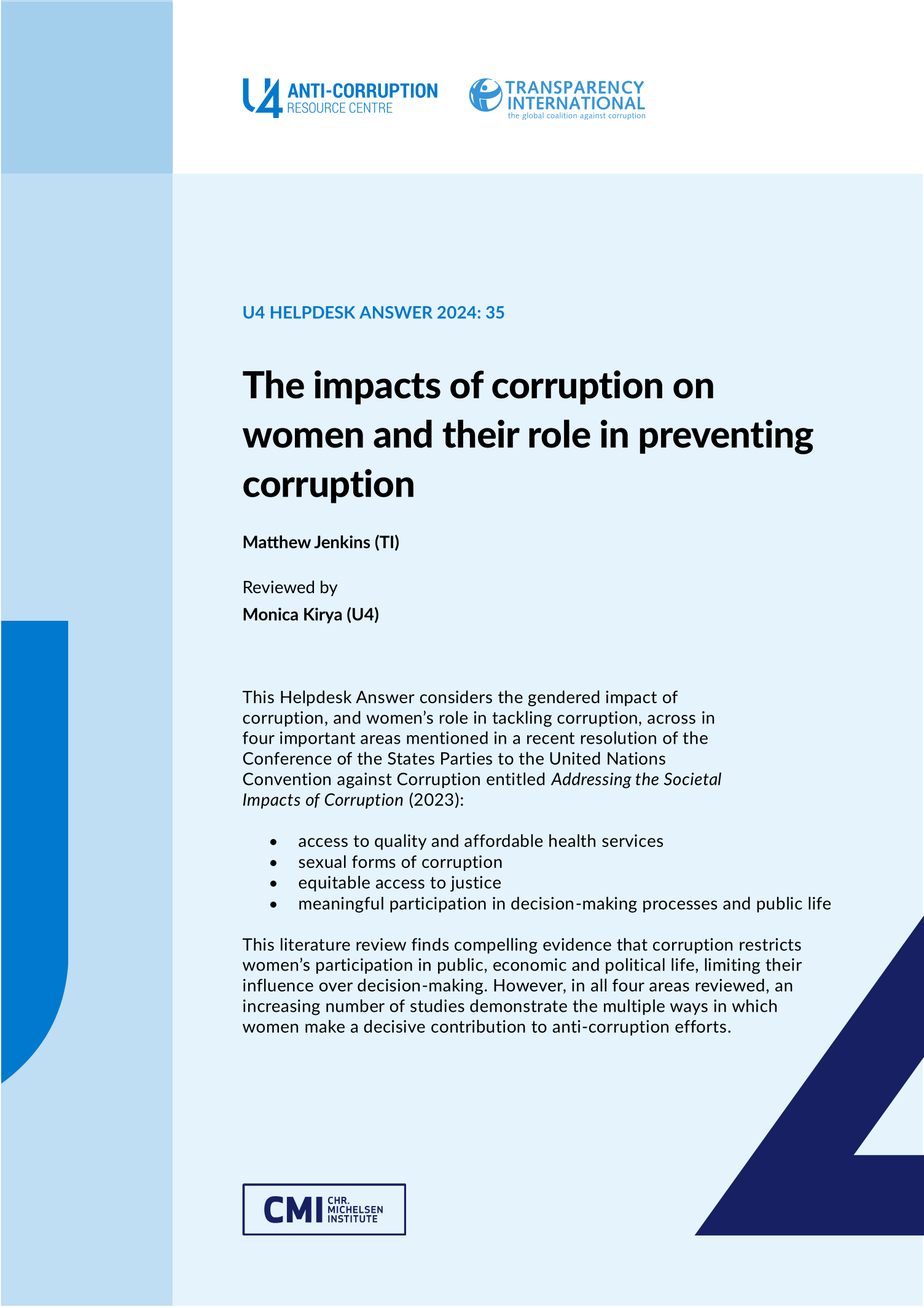Main points
- Gendered norms matter in terms of women’s lived experience of corruption when accessing public services. Corruption hinders women’s access to quality health services, upon which women tend to have a greater reliance due to a combination of social norms and their reproductive health-care needs.
- The most noticeable effects of corruption on women typically occur at the point of service delivery, where service providers and users interact, and extortive demands for bribes or others illicit acts are made. Nonetheless, less visible forms of corruption by mid-level administrators and senior officials can have equally pernicious effects on women’s access to health care.
- Material gender inequities, such as the fact that women generally possess fewer – or have less control over – financial assets can leave them less able to pay material bribes. In the last twenty years, research has uncovered how corrupt individuals in positions of authority extort sexual acts in return for goods or services to which the targeted person is entitled, a phenomenon commonly referred to as ‘sextortion’.
- Recent work by Bjarnegård et al. (2024a) has sought to broaden the understanding of sexual corruption beyond a narrow view of ‘sextortion’ to also encompass situations in which people with entrusted authority request or accept sexual acts in exchange for providing unwarranted privileges.
- Attempts to gauge the scale of sexual corruption through representative surveys have revealed it to be a widespread practice around the world.
- Where paying bribes to judicial or administrative staff becomes a prerequisite to access the court system, women’s relatively weaker access to and control over financial resources means they are more frequently denied justice than men. Gender inequality can be particularly stark when legal proceedings relate to property, while corruption in formal justice institutions can drive women towards informal justice mechanisms.
- Despite suffering disproportionately from the gendered impact of corruption, emerging data indicates that women appear to be less likely than men to report corruption. Gender inequalities likely explain this phenomenon, including the well-founded perception of gender bias in the processing of corruption cases, women’s lack of financial resources, and their greater anxiety of reprisals and re-victimisation.
- In systems in which political recruitment is not controlled through male-dominated patronage-based systems, women are more likely to enter elected office. Once there, there is strong empirical evidence that women have incentives and the ability to disrupt networks that perpetuate political corruption.
- While a higher proportion of women in elected office is correlated with lower levels of corruption, there are competing theories as to why this happens, including their marginalisation from male-dominated elite networks and their greater concern for well-functioning public service delivery.



